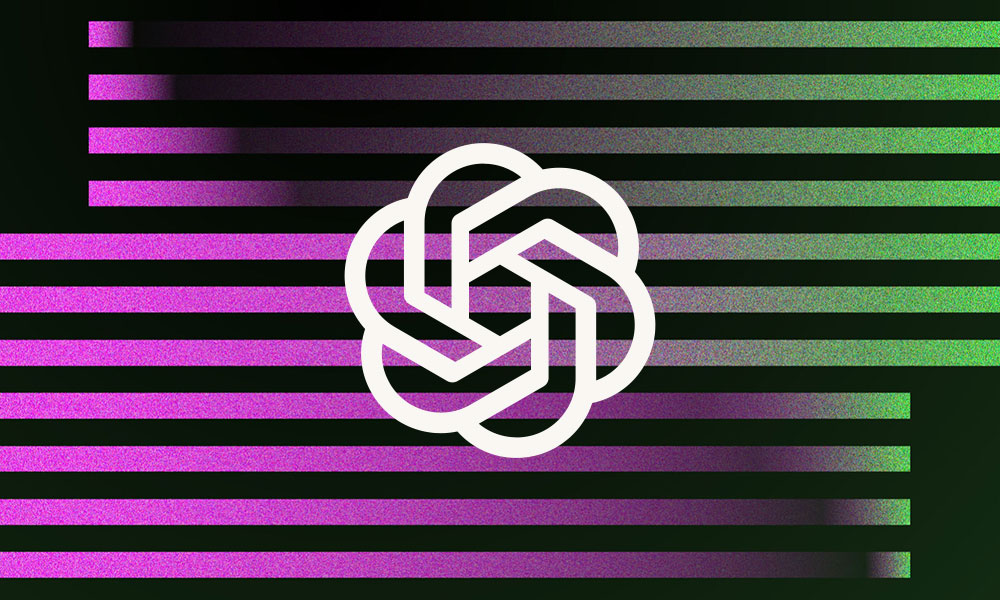The Truth About ChatGPT and Blogging: What You Need to Know Before You Dive In

ChatGPT is an AI language model developed by OpenAI that's designed to generate human-like text. It's an advanced system that uses machine learning algorithms to process and analyse vast amounts of data, allowing it to generate text that's coherent, natural, and engaging.
HISTORY TIME!
The name "ChatGPT" is a combination of "chat" and "GPT," which stands for "Generative Pretrained Transformer." This refers to the underlying architecture of the model, which is based on the Transformer neural network and has been pre-trained on a massive dataset of text. This pre-training allows ChatGPT to understand the patterns and relationships between words, phrases, and sentences, giving it a broad understanding of language and the ability to generate text that's both grammatically correct and semantically meaningful.
The history of ChatGPT is closely tied to the broader history of AI and natural language processing. ChatGPT is a cutting-edge AI language model developed by OpenAI, and it represents the latest step in a long journey of progress and innovation in this field.
The journey began in the mid-20th century, when computer scientists first started exploring the idea of creating machines that could understand and generate human language. Early efforts in this field were limited by the computing power available at the time, and the results were often crude and simplistic. But as computing power increased and algorithms improved, researchers were able to make rapid progress, and by the 1990s, natural language processing had become a thriving field of research.
In the early 2000s, researchers began experimenting with deep learning algorithms, which were capable of processing vast amounts of data and learning complex patterns and relationships between input and output. This marked a turning point in the field, as deep learning algorithms quickly began to outperform traditional algorithms in a wide range of natural language processing tasks.
In recent years, the field has been dominated by the Transformer architecture, which was introduced in 2017. The Transformer is a neural network architecture that's specifically designed for processing sequences of data, such as text. It uses a self-attention mechanism that allows it to capture long-range dependencies between elements in the sequence, making it well suited for processing language data.
And this brings us to ChatGPT. ChatGPT is a highly advanced Transformer-based AI language model that's been pre-trained on a massive corpus of text data. This pre-training allows it to understand the patterns and relationships between words, phrases, and sentences, and to generate text that's both grammatically correct and semantically meaningful.

But what makes ChatGPT truly special is its ability to continue learning and improving as it processes more data. Unlike traditional rule-based systems, ChatGPT is capable of adapting and evolving as it gains more experience, making it an incredibly powerful and flexible tool for a wide range of applications.
So, what does the future hold for ChatGPT and AI language models more broadly? The potential applications for these technologies are vast and varied, and as the field continues to advance, it's likely that we'll see new and exciting uses for AI language models emerge. Whether it's improving customer service, generating creative content, or assisting with scientific research, ChatGPT and its peers have the potential to make a significant impact on our lives and our world.
PRESENT TENSE?
ChatGPT is much more than just a text generator. It's a highly intelligent and flexible system that can be used for a variety of tasks, from answering questions and generating creative writing to generating code and even composing music. This versatility is due to the nature of the Transformer architecture and the way ChatGPT has been trained. By exposing the model to a diverse range of text, it has learned to understand and generate a wide range of styles and forms of language, from formal and academic to informal and conversational.
So, what makes ChatGPT so interesting and engaging? Well, for starters, it's a true AI system that can hold conversations and answer questions in a human-like manner. This makes it an excellent tool for customer service, where it can assist customers in real-time and provide quick, accurate answers to their questions. Additionally, its ability to generate creative and compelling text makes it a valuable tool for content creators and marketers who are looking to create engaging and attention-grabbing content.
Another aspect that makes ChatGPT so intriguing is its ability to learn and adapt. Unlike traditional rule-based systems, ChatGPT can continue to improve and evolve as it processes more data and gains more experience. This means that it can become even more human-like and sophisticated over time, making it an exciting tool to watch as AI continues to advance.
Finally, it's worth mentioning that ChatGPT is a highly ethical and responsible AI system. OpenAI has taken great care to ensure that the model has been trained on a diverse and inclusive dataset, and that it adheres to ethical standards when it comes to generating text. This means that you can use ChatGPT with confidence, knowing that it's been designed and trained to promote positive values and to avoid perpetuating harmful stereotypes or biases.
But What About Blog Writing?
Blogging is an incredibly powerful tool for reaching and engaging with audiences, but it can also be time-consuming and challenging, especially for those who are responsible for generating new content on a regular basis. That's where ChatGPT comes in - this cutting-edge AI language model has the potential to revolutionise the way we create and publish blog articles, making the process faster, easier, and more efficient.

Speed
One of the biggest benefits of using ChatGPT for blog articles is speed. With ChatGPT, you can generate a high-quality, well-written article in a matter of minutes, rather than hours or even days. This makes it an ideal tool for bloggers who need to produce new content on a tight deadline, or who simply want to save time and focus on other aspects of their blogging work.
Accuracy
Another advantage of using ChatGPT is accuracy. Unlike human writers, ChatGPT doesn't suffer from writer's block or fatigue, and it's capable of generating grammatically correct and semantically meaningful text at scale. This means that you can be confident that your blog articles will be well-written and free of typos and other errors, even if you're producing large quantities of content.
Quality
In addition to speed and accuracy, ChatGPT also offers the potential to improve the quality of your blog articles. This is because it's capable of generating new ideas and perspectives that you may not have thought of on your own. Whether you're writing about a complex technical topic, or simply need some inspiration for your next blog post, ChatGPT can help you generate fresh, innovative content that will captivate and engage your readers.
Scalability
Another important benefit of using ChatGPT for blog articles is scalability. With ChatGPT, you can generate large quantities of high-quality content with minimal effort, making it an ideal tool for bloggers who want to reach a larger audience or who are looking to grow their blog over time. This means that you can spend more time engaging with your readers and less time writing, giving you the freedom to focus on what you love about blogging.
Economy
Using ChatGPT for blog articles can also save you money. Rather than hiring a team of writers (at this point in the writing of this article, our writer had a panic attack and the rest of this blog will be written with the assistance of ChatGPT) or paying for expensive content creation software, you can use ChatGPT to generate high-quality content at a fraction of the cost. This makes it an ideal solution for bloggers who are working with a limited budget, or who simply want to maximise the return on their investment.
Sounds Solid. Are There Any Downsides?
While ChatGPT is a powerful tool that offers many benefits for bloggers, it's not without its shortcomings. Let’s explore some of the limitations of using ChatGPT for blog articles, and discuss why it's important to be aware of these limitations when considering this technology (Oh, our writer perked up at this point and will continue writing now).

Repetitive
One of the biggest shortcomings of using ChatGPT for blog articles is the quality of the content it generates. While ChatGPT is capable of producing well-written text that is free of typos and grammatical errors, it can sometimes struggle to generate content that is truly meaningful and engaging. This is because ChatGPT relies on pattern recognition and statistical analysis, which can sometimes result in articles that are formulaic and lack the creativity and originality that makes good blogging so captivating.
Not Reading The Room
Another limitation of using ChatGPT for blog articles is that it's not always able to understand the context and tone of the content it's generating. This can result in articles that are inappropriate or that simply don't resonate with your target audience. For example, ChatGPT might generate an article about a serious topic in a lighthearted tone, or vice versa, which can undermine the credibility and effectiveness of your content.
Going Off Brand
A third limitation of using ChatGPT for blog articles is that it's not always able to produce content that is fully in line with your brand voice and messaging. This can be a challenge, especially if you're looking to maintain a consistent and cohesive brand image across your blog and other marketing channels. While ChatGPT can be trained to better understand your brand voice and messaging over time, this process can be time-consuming and requires ongoing monitoring and management.
Originality Or Lackthereof
Another shortcoming of using ChatGPT for blog articles is that it can be difficult to ensure the originality and uniqueness of the content it generates. This is because ChatGPT is designed to generate text based on patterns and templates it has learned from existing content, which can sometimes result in articles that are similar or even identical to existing content on the web. This can be a problem for bloggers who are looking to maintain their credibility and establish themselves as thought leaders in their niche.
Lacks The Human Touch
Using ChatGPT for blog articles also raises questions about the ethics of AI content generation. While this technology can be a valuable tool for bloggers, it also raises concerns about the potential for AI-generated content to be used to spread misinformation or propaganda, or to undermine the importance of original and creative content creation. As AI content generation becomes more widespread, it's important for bloggers and marketers to consider the ethical implications of this technology and to take steps to ensure that it's used responsibly.
Not A Know-It-All
ChatGPT's knowledge cutoff is 2021 (even the developers have noted it themselves in the usage agreement when you sign up for it), which means that it has been trained on a large corpus of text up until that year. Thus, it may not be able to provide accurate information on events or developments that have occurred since then.
However, it's worth noting that despite its knowledge cutoff, ChatGPT is still capable of generating a wide range of text on a wide range of topics. Its ability to understand language patterns and relationships between words and phrases allows it to generate text that's coherent and semantically meaningful, even if it's not up-to-date on the latest information.
Closing Words
ChatGPT has certainly made its mark in the world of blogging. This AI technology offers many benefits to bloggers, including the ability to produce high-quality content in a fraction of the time it would take to write it manually. However, it's also important to be aware of its limitations, including the potential for formulaic and unengaging content, as well as the challenges of ensuring the originality and uniqueness of the content it generates.
Despite these limitations, ChatGPT is an exciting and powerful tool that has the potential to revolutionise the way bloggers and marketers approach content creation. Whether you're looking to streamline your content creation process, or you're simply looking for a way to create high-quality content quickly and easily, ChatGPT is definitely worth considering.
So, if you're ready to take your blogging to the next level, why not give ChatGPT a try? Whether you're a seasoned blogger or just getting started, this AI technology has the potential to help you create compelling, high-quality content that resonates with your target audience and drives engagement and conversions. So why wait? Get started with ChatGPT today, and experience the future of blogging for yourself!

